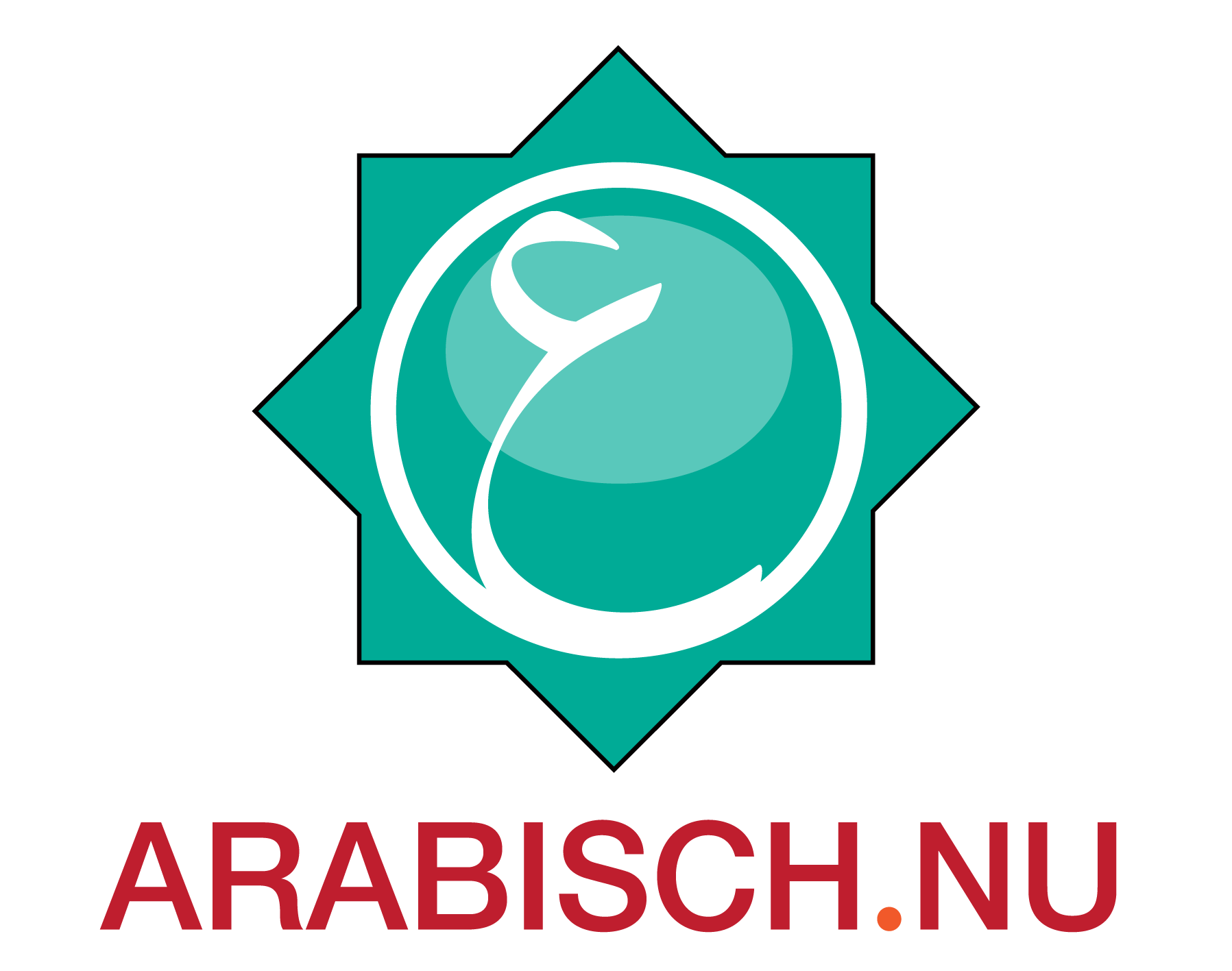Words
Quickly search for Introduction, General, Dictionaries A, B, C, D, E, F, G, H, I, J, K, L, M, N, O, P, Q, R, S, T, U, V, W, X, Y, Z
A man who knows two languages is worth two men
الإنــْـسـَـان الــَّـذي يــَـعــْـرِف لــُـغــَــتــَــيــْــن يـُــســَـاوِي رَجــُــلــَــيــْـن
Introduction
Did you know, many English words have a root in Arabic? You will probably surprise yourself by how many Arabic words you recognize! Such as Algebra ….. . Please follow this link for a list of some more.
A lot of English words starting with “al” or “el” initially come from Arabic, for example, algebra, alcohol, alkali, alcove, and almanac. Scientific terms and especially the names of many stars are originated from Arabic. Many words taken over from Arabic are of maritime origin. Also, names of many foods and other products have an Arabic origin. Some words are borrowed directly from Arabic; but most of these words have taken the scenic route, through Spanish, Italian, and/or French; or through Turkish, Persian, or Urdu; or through Hebrew or Latin. This produces a good deal of phonological deformation; as does the dialect variation within Arabic. Moreover, there are also Arabic words which have not been translated and have been admitted recently, such as harem (prohibited), halal (permitted), tawhid/tauhid (entity (of God)).
General
- From Arabic to English (Aug.’10) New
- Write your name in Arabic calligraphy New Tip!
Dictionaries
- Woordenboek.eu (Dutch/ عَـرَبِـي/ English)
- AlMisbar
- WordWeb Online
- Lessan.org (Duits)
- Lingo24 Arabisch-Engels (Français)
- Lingo24 Engels-Arabisch (Français)
A
- admiral أدمــِـيــرال – ami:r-al-bahr ‘ruler of the seas’ (and other similar expressions) – amara command. noun. The commander in chief of a fleet. A flag officer. a. Abbr. ADM or Adm. A commissioned rank in the U.S. Navy or Coast Guard that is above vice admiral and below Admiral of the Fleet. b. One who holds the rank of admiral, Admiral of the Fleet, rear admiral, or vice admiral. Any of various brightly colored butterflies of the genera Limenitis and Vanessa. Archaic The ship carrying an admiral; flagship. Origin: Middle English amiral, admiral, from Old French and from Medieval Latin amīrālis, admīrālis, both from Arabic’amīr al- …, commander of the … : ’amīr, commander; + al-, the.
- adobe – al-toba ‘the brick’. noun. a. A sun-dried, unburned brick of clay and straw. b. The clay or soil from which this brick is made. A structure built with this type of brick. Origin: Spanish, from Arabic aṭ-ṭūba, the brick : al-, the + ṭūba, a brick, singulative of ṭūb, bricks (from Coptic tōbe, tōōbe, from Egyptian ḏbt, brick).
- albacore – al-bukr ‘the young camel’
- alchemy – al-ki:mi:a: – from Greek
- alcohol الــْـكــُــحــُـول – al-koh”l ‘the kohl‘. Alcohol is one word that has changed drastically from its original Arabic meaning. The early word al-kuhl meant “(the) kohl” and referred to the finely ground black powder the Egyptians used as dramatic eyeliner. In the 1700s, alcohol came to mean an intoxicant found in beer, wine, and spirits.
- alcove الــْـقــُـبــَّـة – al-qobbah ‘vault’ – qubba vault. noun 1. A recess or partly enclosed extension connected to or forming part of a room. 2. A secluded structure, such as a blower, in a garden. Origin: French alcôve, from Spanish alcoba, from Arabic al-qubba, the vault : al-, the + qubba, vault.
- alembic – al-ambi:q ‘the still’ – from Greek
- alfalfa – alfas,fas,ah ‘fodder’
- algebra – al-jebr ‘reintegration’ – jabara reunite
- Algol – al-ghu:l ‘the ghoul‘
- algorithm – al-Khowarazmi ‘the (man) of Khiva’
- alkali – al-qaliy ‘calx’ – qalay fry, roast
- Allah – `allah, from contraction of al-ilah ‘the god’
- Almagest – al-majisti – from Greek
- almanac – (Andalucian Arabic) al-mana:kh, of uncertain origin
- amber – `anbar ‘ambergris’
- antimony – al-íthmid ‘antimony trisulphide’ – perhaps from Greek
- apricot – al-burquq – from Greek. This firm, golden fruit has a long name history. It entered the English language from the Portuguese word albricoque or the Spanish term albaricoque, but eventually became the word abricot. The Old Spanish word derived from the Arabic word al-burquq, which originated from a Latin variant for “early ripe.”
- Arab – `arab
- arsenal – dar as,s,ina`ah ‘house of making’, i.e. ‘factory’ – s,ana`a make
- artichoke – al-kharshu:f. Ancient Europeans in Egypt and Rome ate cardoons, a wild relative to the modern artichoke. Historians believe that the Islamic world likely cultivated artichokes from this wild plant. Eventually, artichokes made their way to Europe, known as articiocco, which ultimately came from the Arabic word al-karsufa.
- assagai – az-zaghayah – from Berber
- assassin – h’ashsha:shi:n ‘hashish eaters’, from the Isma`ili sectarians
- average – damage to ship or cargo (which was shared, or averaged out equally among investors)
- attar – `itr ‘aroma’
- ayatollah – ‘ayatu-llah ‘miraculous sign of God’
- azimuth – as-sumut ‘the paths’; see also zenith
- azure – al-lazward ‘lapis lazuli’ – from Persian
B
- barberry – barberry bush
- barbican – (possibly) bâb-al-baqara ‘gate with holes’
- benzoin – frankincense of Java
- berber – barbbaric, uncivlized
- berdache – (possibly) bardaj ‘slave’
- Betelgeuse – bi:t al-jauza:’ ‘shoulder of the Giant’
- borax – sodium borate
- bezoar – bazahr – from Persian
- bint – bint ‘daughter
- bled – balad ‘vast open country’
- borax – bu:raq – from Persian
- burka – burqa`
- burnouse – burnus
C
- caliber – qali:b ‘mold, last’ –
- calico – Qaliqu:t ‘Calicut’, city in India
- caliph – khali:fah ‘successor’ – khalafa ‘succeed’
- camel – camel
- cameo – flower buds
- camise – qami:s ‘shirt’ – from Latin
- camphor – ka:fu:r – from Malay
- candy – short for ‘sugar candy’, from sugar + qandi ‘candied’, from qand ‘cane sugar’ – from a Dravidian language
- cane – hollow stick
- carat – qi:ra:t ‘small weight’ – from Greek
- caraway – alkarawya: – probably from Greek. Caraway seeds taste similar to anise (licorice) and often appear in Indian dishes and desserts among other foods. The word caraway likely became part of the English language from the Medieval Latin carui. It was called alcaravea or alcarahueya in Old Spanish, from the Arabic al-karawiya or al-karwiya.
- carafe – gharra:f – gharafa ‘dip’
- carmine – qirmazi: ‘crimson’
- carob – kharrubah. Carob trees are small trees that grow in the eastern Mediterranean and produce edible pods. You can ground them into flour and use them as a healthier substitute for chocolate. Carob comes from the Old French word carobe, from the Medieval Latin carrubia, a word derived from the Arabic term kharruba.
- cassock – kaza:ghand ‘padded jacket’ – from Persian
- check – sha:h ‘king’ – from Persian
- checkmate – sha:h ma:t ‘the king (Shah) is dead’
- chemistry – see alchemy
- chess – from Old French eschecs, plural of check
- cipher – s,ifr ’empty’ , zero
- cinnabar – mercuric sulfide
- civet – zaba:d
- coffee – qahwah, coffee. This popular beverage name from the Arabic word qahwah, meaning ” strong “. It is possible that the original simply meant “dark stuff.” Europe began using the word circa 1600, taking it from the Turkish term kahve.
- Copt – quft – from Greek
- cork – qu:rq
- cotton – qutn, cotton from Gossypium plant
- couscous – kuskus – kaskasa pound, bruise
- crimson – qirmazi:, related to the qirmiz, the insect that provided the dye
- crocus – saffron
- cumin – cumin plant
D
- Deneb – danab al-jaja:ja ‘tail of the hen’
- dhow – da:w
- dinar – di:na:r – from Greek
- dirham – dirham – from Greek
- dragoman – tarjuma:n – tarjama interpret
- drub – daraba ‘beat’, hit
- dura mater – Latin calque on umm al-ghali:dah ‘hard mother’
E
- efreet – ‘ifri:t ‘monster’
- El Cid – al-Sayyid ‘the lord’
- elixir – al-iksi:r ‘philosopher’s stone’ , the drug – from Greek
- emir – ami:r – amara command
F
- fakir – faqi:r ‘poor man’ – faqura be poor
- fardel – fardah ‘load’
- Farsi – Fa:rs ‘Pars’, a province of Iran – from Persian
- fatwa – fetwa – fata: instruct by a legal decision
- fedayeen – fida:’iyi:n ‘commandos’ – fida:` redemption
- felafel – fala:fil
- fellah – fella:h’ ‘husbandman’ – falah’a till
- felucca – fulk ‘ship’ – falaka be round
- Fomalhaut – fum u’l-haut ‘mouth of the fish’
G
- garble – gharbala ‘sift’ – perhaps from Latin
- gazelle – ghaza:l, gazelle
- genie – jinni: ‘spirit’, demon
- gerbil – yarbu:`, desert rodent
- ghoul – ghu:l ‘demon’ – gha:la take suddenly
- giraffe – zara:fa, African mammal
- guitar – guitar (from Greek) – kithara, “lyre”
- gypsum – mortar
H
- hadith – h’adi:t ‘tradition’
- haj – h’ajj ‘pilgrimage’ – h’ajja go on a pilgrimage
- halal – h’ala:l ‘lawful’
- halvah – h’alwa:
- harem – h’aram ‘prohibited, set apart’ – h’arama prohibit
- hashish – h’ashi:sh ‘dried herbs, hemp’
- hazard – yásara ‘play at dice’
- hegira – hijrah ‘departure’ – hajara separate, go
- henna – h’enna:`
- Hezbollah – H’izbulla:h ‘party of God’
- hookah – h’uqqah ‘water bottle (through which smoke is drawn)’
- houri – h’u:r al-`ayu:n ‘with eyes like gazelles’ – h’awura have eyes like gazelles
I
- imam – ima:m ‘leader’ – amma precede
- Islam – isla:m ‘submission’ – aslama submit oneself
J
- jacket – mailcoat
- jar – jarrah ‘large earthen vase’
- jasmine – ya:smi:n – from Persian
- jinn – jinn ‘spirits’, plural of genie
- julep – jula:b ‘rose water’ – from Persian
K
- Kaaba – ka`bah ‘square house’
- kabob – kaba:b – from Persian
- kaffir – ka:fir ‘infidel’ – kafara conceal, deny
- keffiyeh – kaffi:yah
- khamsin – khamsi:n ‘fifty (days)’
- kismet – qisma ‘portion, lot’ – qasama divide
- kohl – koh”l ‘kohl’ – kah’ala stain, paint
- Koran – qura:n ‘recitation’ – qara`a read
L
- lilac – li:la:k – from Persian
- lemon – laymu:n – from Persian
- lime – li:mah ‘citrus fruit’
- loofah – lu:fah a plant whose pods were used as sponges
- lute – al-`u:d, stringed instrument
M
- macramé – miqramah ‘striped cloth’
- magazine – makha:zin ‘storehouses’ – khazana store
- Mahdi – mahdi:y ‘one who is guided aright’ – hada: lead
- majlis – majlis ‘council’
- mancala – mank.ala – nak.ala move
- marzipan – mawthaba:n ‘coin featuring a seated figure’
- mask – perhaps maskhara ‘buffoon’ – sakhira ridicule
- massage – stroke, touch
- mattress – matrah ‘place where something is thrown, mat, cushion’ – tarah’a throw
- minaret – mana:rah – na:r fire
- mocha – port known for its coffee
- mohair – mukhayyar ‘choice (goats’-hair cloth)’ – khayyara select
- monsoon – mausim ‘season’ – wasama mark
- mosque – masgid – sagada worship
- Mozarabic – musta`rib ‘would-be Arab’
- muezzin – mu’adhdhin ‘criers’ – adhana proclaim
- mufti – mufti: ‘one who gives a fatwa’
- mujahedeen – muja:hidi:n ‘figher in a jihad’
- mullah – mawla: ‘master’
- mummy – mu:miya: ’embalmed body’ – mu:m ‘(embalming) wax’
- Muslim – muslim ‘submitter’ – aslama submit oneself
- muslin – Maus,il ‘Mosul’
N
- nadir – nadi:r as-samt ‘opposite the zenith’
- natron – natru:n – from Greek
- nizam – nidam ‘government’
O
- orange – na:ranj – from Sanskrit. As oranges spread westward from Sri Lanka, the word was narang in Persian and naranj in Arabic. Arabs introduced this citrus fruit to Sicily and it spread throughout Europe. It became part of the English language as “orange” around the 1400s.
- ottoman – `uthma:n, a proper name
P
- pia mater – Latin calque on umm raqi:qah ‘tender mother’
- popinjay – babagha:
- Primum Mobile – Latin calque on al-muh’ arrik al-awwal ‘the first mover’
Q
R
- racket – râh’et ‘palm of the hand’
- Ramadan – Ramada:n meaning perhaps ‘the hot month’ – ramata be heated
- realgar – rehj al-gha:r ‘powder of the cave’
- ream – rizmah ‘bundle’
- rebec – reba:b
- Rigel – rijl ‘foot (of Orion)’
- roc – rukh
- rook – rukh – from Persian
- Rubaiyyat – ruba:`i:yah ‘quatrain’
S
- safari – safari:y ‘journey’ – safara travel
- saffron – za`fara:n. Costly Saffron requires a tremendous number of crocus flowers to create the amount of stigmas needed for this pungent spice to flavor and color foods. The word came into English use from an Old French word, Safran. The Old French word, in turn, came from the Arabic za’faran.
- Sahara – çah’ra: ‘desert’
- sahib – ça:h’ib ‘friend’
- salaam – as-sala:m `alaikum ‘peace be on you’
- saluki – salu:k.i: ‘from Saluk’
- Saracen – sharqi:yi:n ‘easterners’ – sha:raqa rise
- sash – sha:sh ‘muslin’
- satin – probably zaytu:ni: ‘of Zaytu:n’ (a city in China)
- scarlet – siqilla:t ‘(cloth) adorned with images’ – from Latin
- sequin – sikkah ‘die for coinmaking’
- Sharia – shari:`a
- sheik – shaikh ‘old man’ – sha:kha grow old
- sherbet – sharbah – shariba drink. Sherbet began as a drink in the Middle East that comprised fruit juices and sweetened water. The word came to the English language in the 1600s, borrowed from Persian and Turkish. They got sherbet from the Arabic word sharbah, derived from shariba, which means “to drink.”
- Shiite – shiya`i:y, from shiya:` ‘following, sect’ – sha`a follow
- shrub [drink] – shurb ‘a drink’ – shariba drink
- sine – Latin sinus, mistranslation of jayb ‘chord of an arc, sine’, through confusion with jayb ‘fold of a garment’
- sirocco – sharq ‘east (wind)’ – sha:raqa rise
- sofa – s,uffah ‘raised dais with cushions’
- souk – su:k. ‘marketplace’
- spinach – isfa:na:kh
- Sufi – çu:fi: ‘man of wool’
- sugar – sukkar – from Sanskrit
- Sukuk (Arabic: صـُــكـُـوك , plural of صـَــك Sakk, “legal instrument, deed, check”) is the Arabic name for financial certificates, but commonly refers to the Islamic equivalent of bonds. Since fixed income, interest bearing bonds are not permissible in Islam, Sukuk securities are structured to comply with the Islamic law and its investment principles, which prohibits the charging, or paying of interest. Financial assets that comply with the Islamic law can be classified in accordance with their tradability and non-tradability in the secondary markets.
- sultan – sulta:n ‘sovereign’
- sumac – summa:q
- Sunni – sunni: ‘lawful’, from sunna:h ‘rule, course’
- sura – su:rah
- syrup – shara:b ‘beverage’ – shariba drink
T
- tabbouleh – tabbu:la
- tabby – `atta:biy, a neighborhood in Baghdad where taffeta was made
- tahini – – tah’ana crush
- Taliban – talib ‘student’ – talaba study
- talisman – tilsam – from Greek
- tamarind – tamr-hindi: ‘date of India’. Tamarind is a popular flavoring in Asian cooking and is a brown, sticky pulp from a pod of the pea family. It can also refer to the African tree that produces these pods. The English version of the word came from the Medieval Latin term tamarindus, which in turn derived from the Arabic tamr hindi, meaning “Indian date.”
- tambourine – a small tambour, from tanbu:r – from Persian
- tandoori – tannu:r ‘oven’
- tangerine – name of a Maroccan port: Tangiers
- tarboosh – tarbu:sh
- tare [weight] – tarh’ah ‘rejected’ – tarah’a reject
- tariff – ta`ri:f ‘notification’ – `arafa notify
- tarragon – tarkhu:n – possibly from Greek
- tell [mound] – tall ‘hillock’
- tripe – layer of intestine fat
- typhoon – whirlwind (from Greek)
U
- ujamaa – jama:` ‘community’
- ulema – `ulima: ‘the learned ones’ – `alama know
V
- Vega – al-nasr al-wa:qi` ‘the falling vulture’
- vizier – wazi:r ‘porter, public servant’ – wazara carry
W
- wadi – wa:di:
- Waqf – waqf ‘religious foundation’
- wisdom tooth – from a Latin calque on adra:su ‘l h’ikmi – calqued from Greek
Z
- zenith – samt ‘path’
- zero – s,ifr ’empty’
- zirconium – zirconium metal
Permalink Comments off





